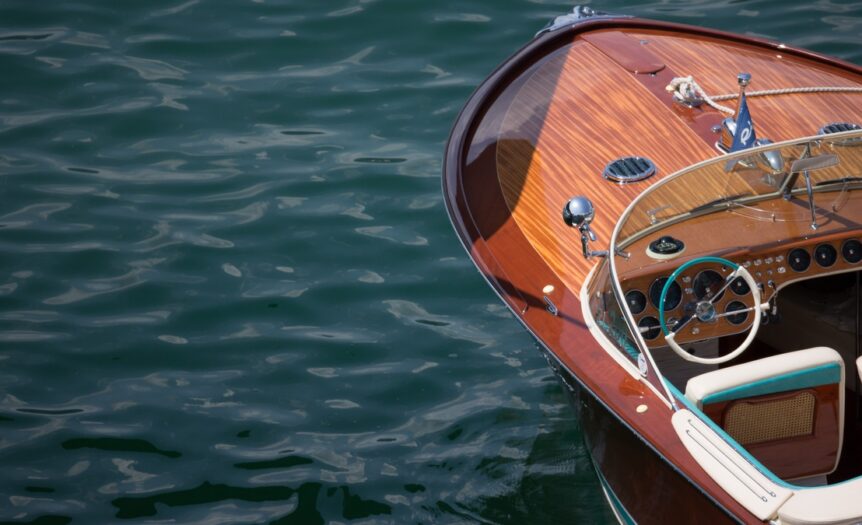Southern Florida is a paradise for boating enthusiasts, but the impact of its tropical weather on watercraft engines can be concerning. Boats in this region face challenges that require unique attention, from intense heat and high humidity to occasional storms. Understanding how these elements affect performance will keep your engine running smoothly and protect your vessel.
Rising Temperatures and Engine Overheating
The tropical heat in southern Florida can cause watercraft engines to overheat quickly, especially during long outings. High ambient temperatures force engines to work harder to maintain efficiency. It could reduce your engine performance or fail if your cooling system isn’t in top condition.
Regularly check this vital system and monitor the engine temperature gauge while cruising. Using high-quality marine-grade oil also protects moving components from heat damage.
Humidity and Corrosion
The ocean’s salty, humid air is another challenge for watercraft engines. Humidity accelerates the corrosion in metal parts, including engine components, which also affects performance. This issue is more prevalent in electrical connections and fuel systems.
Thoroughly rinse your boat with fresh water after each use to combat corrosion and pay attention to hidden areas around the engine. Applying an anti-corrosion spray to critical components offers an added layer of protection.
Heavy Rain and Storms
Tropical downpours and storm conditions tend to drench watercraft engines, increasing the risk of water ingress. Water that enters the engine can cause serious damage and force you to take it out of the water for repairs.
Keep hoses, seals, and covers in good condition to prevent water from creeping into places it shouldn’t. Securely store your boat to avoid exposure to extreme weather events.
Spark Plug Challenges in Tropical Weather
Two common causes of spark plug failure in watercraft engines are high humidity and salt exposure. Salt buildup and moisture corrode spark plugs, causing misfires or difficulty starting your engine.
Replace spark plugs at recommended intervals and regularly check them for signs of corrosion or wear. Keeping a spare set of spark plugs on board can save your day if your engine gives you trouble on the water.
The impact of its tropical weather on watercraft engines can be challenging, but preventive measures minimize the effect on performance. Monitor your cooling system, rinse your craft after every outing, and replace worn components, such as spark plugs, before they cause more serious issues. Every boating adventure will be ready to meet the open sea and the demands of the tropical climate by staying proactive.










 Deering Estate
Deering Estate
 Massage Envy South Miami
Massage Envy South Miami
 Calla Blow Dry
Calla Blow Dry
 My Derma Clinic
My Derma Clinic
 Sushi Maki
Sushi Maki
 Sports Grill
Sports Grill
 The Healthy Kitchen
The Healthy Kitchen
 Golden Rule Seafood
Golden Rule Seafood
 Malanga Cuban Café
Malanga Cuban Café

 Kathleen Ballard
Kathleen Ballard
 Panter, Panter & Sampedro
Panter, Panter & Sampedro
 Vintage Liquors
Vintage Liquors
 The Dog from Ipanema
The Dog from Ipanema
 Rubinstein Family Chiropractic
Rubinstein Family Chiropractic
 Your Pet’s Best
Your Pet’s Best
 Indigo Republic
Indigo Republic




 ATR Luxury Homes
ATR Luxury Homes


 2112 Design Studio
2112 Design Studio
 Hamilton Fox & Company
Hamilton Fox & Company
 Creative Design Services
Creative Design Services
 Best Pest Professionals
Best Pest Professionals
 HD Tree Services
HD Tree Services
 Trinity Air Conditioning Company
Trinity Air Conditioning Company
 Cisca Construction & Development
Cisca Construction & Development
 Mosquito Joe
Mosquito Joe
 Cutler Bay Solar Solutions
Cutler Bay Solar Solutions


 Miami Royal Ballet & Dance
Miami Royal Ballet & Dance
 Christopher Columbus
Christopher Columbus
 Pineview Preschools
Pineview Preschools
 Westminster
Westminster
 Carrollton
Carrollton
 Lil’ Jungle
Lil’ Jungle
 Frost Science Museum
Frost Science Museum
 Palmer Trinity School
Palmer Trinity School
 South Florida Music
South Florida Music
 Pinecrest Orthodontics
Pinecrest Orthodontics
 Dr. Bob Pediatric Dentist
Dr. Bob Pediatric Dentist
 d.pediatrics
d.pediatrics
 South Miami Women’s Health
South Miami Women’s Health

 The Spot Barbershop
The Spot Barbershop
 My Derma Clinic
My Derma Clinic




 Miami Dance Project
Miami Dance Project

 Rubinstein Family Chiropractic
Rubinstein Family Chiropractic
 Indigo Republic
Indigo Republic

 Safes Universe
Safes Universe
 Vintage Liquors
Vintage Liquors
 Evenings Delight
Evenings Delight





 Atchana’s Homegrown Thai
Atchana’s Homegrown Thai
 Baptist Health South Florida
Baptist Health South Florida

 Laser Eye Center of Miami
Laser Eye Center of Miami
 Visiting Angels
Visiting Angels
 OpusCare of South Florida
OpusCare of South Florida

 Your Pet’s Best
Your Pet’s Best





 HD Tree Services
HD Tree Services
 Hamilton Fox & Company
Hamilton Fox & Company


 Creative Design Services
Creative Design Services